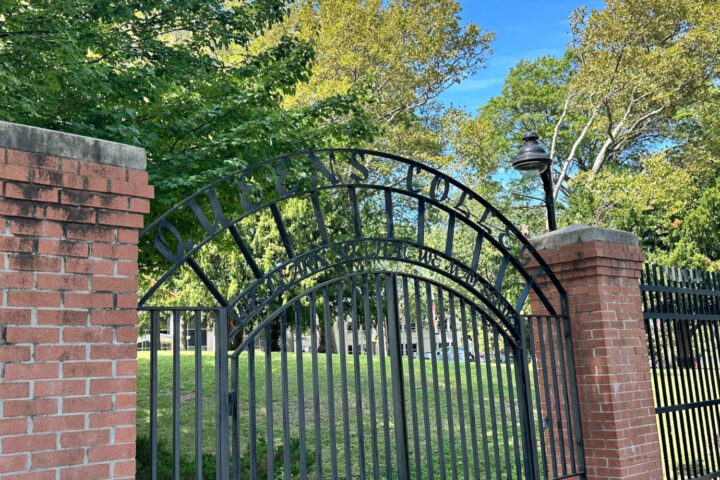Elizabeth Hendrey has taught at Queens College since 1989 and throughout her career at the school, there’s one student who stands out in her mind.
She could not recall a name but described the student from one of her early economics classes as an older man who did some custodial work outside of school. The student, as Hendrey remembered, probably worked just as hard, if not harder than anyone else to achieve his marks on exams. By the time the course was completed that semester, the hard work paid off as he achieved the highest score on the final.
Hendrey, throughout her teaching career and now her administrative career as an interim vice president of QC, has kept that story in her mind for inspiration and perspective on the students of CUNY.
“There’s just no sense of entitlement here,” Hendrey said.
In a recent sit-down interview with editorial board of The Knight News, Hendrey discussed her new position with the school, examined the latest strategic plan for QC and expressed her views about how to make students more successful.
After the departures of former vice presidents Katharine Cobb, Joe Bertolino and Sue Henderson from the school, Hendrey and former VP assistant Adam Rockman were named as interim replacements. Hendrey described her new job function as a mixture of the duties of the three former QC administrators because she partially is in charge of enrollment management, finances and strategic planning.
“Overseeing all of these things works well because I can bring all of these things together,” Hendrey said. “I’m comfortable with the mix, and I am really honored that the president asked me to take this on. It’s a bit overwhelming but I’ve been at QC for a long time, I feel that I know the institution and the people I’m working with.”
Hendrey, who is not teaching this semester, said she receives great satisfaction from building ideas for the school and then making them work — especially when they are for the betterment of students.
“One of our broad goals is to know what we need to do to make students successful,” she said. “From admissions to moving on to the next step. How can we make that work better?”
Hendrey pointed to the creations of new programs and the establishment of the Center for Immigration Studies as examples of successful ideas that stemmed from the school’s strategic plan. She also brought up QC’s high retention rate of students from freshman to sophomore year but did say the number goes slightly down afterward.
With a background in management, Hendrey knows that there are also a few things that need improvement at QC, including building campus community and servicing students better. The problem, however, is how to hold the school accountable.
“It’s got to be something measurable,” Hendrey said. “And they are not things you can always quantify. But there are concrete steps and measures of things that you’ve done like graduation rates, and establishments of programs that look at bringing different groups across campus together. Did we do what we set out to do? If not, maybe there’s a reason.”
Something that Hendrey said the school has done a relatively mediocre job in is making the transition for transfer students easier since these students are not introduced to the school the way freshmen are. She said perhaps an office or center solely for transfers might help.
Other ideas will also be flushed out this semester with the students’ interest in mind, perhaps even more so than ever, because Hendrey said students themselves will be asked for input to the school’s budget for the first time.
The thought process behind the decision is to make things more transparent for students, engage in issues that are problematic and prevent those issues from evolving.
“We should reach out before they are in trouble,” Hendrey said. “We want to make things work better for students.”













